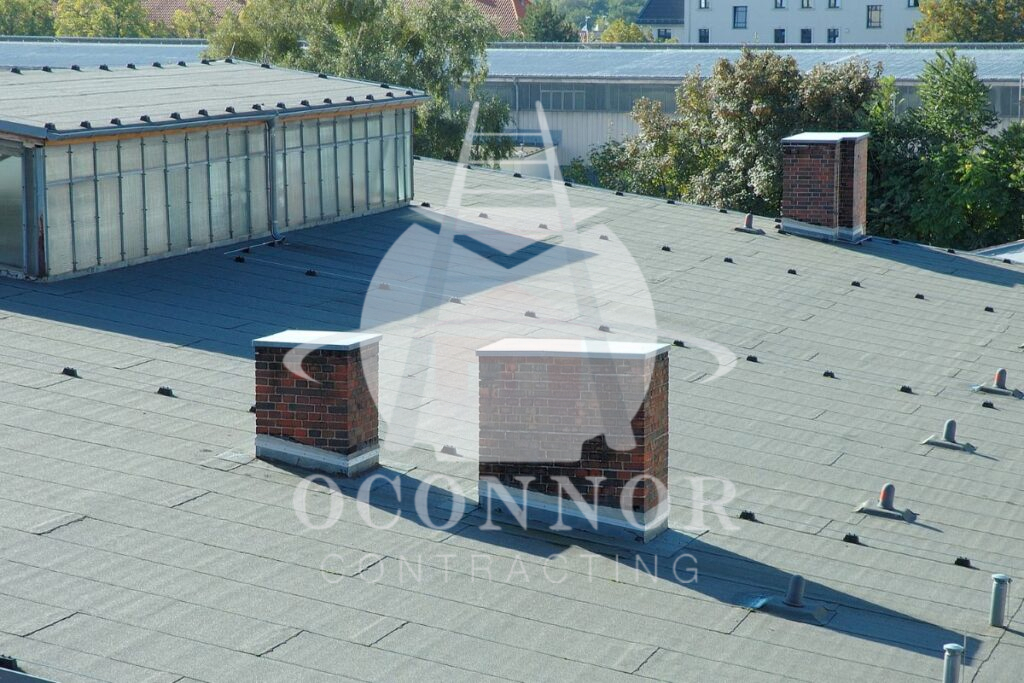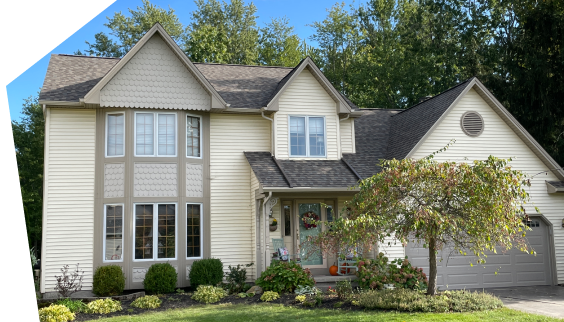Any business that wants to protect its assets, staff, and clients from the elements needs a working roof. The difficult decision of “Do you need to close your business during a roof replacement or not?” must be made by business owners when it comes time for a new roof. But before making a final decision, there are numerous considerations to take into account.
To help you make the best choice for your company, let’s dig in and gain a deeper understanding of all the factors involved.
Will a Roof Replacement Require You to Close Your Business?

While it’s not always necessary to completely shut down operations, there are situations when replacing your roof might necessitate temporarily closing your business for safety. Many skilled roofers can adjust their schedules to fit your business’s needs, whether dividing off specific work areas or moving loud or disruptive projects during off-peak hours.
If your building has limited roof access or if the project is extensive, you might want to consider closing for a while to guarantee quick progress and employee and customer safety. The best course of action for your business will ultimately depend on the details of the situation, so speaking with a respectable roofing company is advised.
Potential Risks of Staying Open
1. Exposure to Debris and Hazards:
Roof replacements involve removing debris and old materials and installing new ones, exposing individuals to risks like falling debris, nails, and membrane pieces, endangering employees, clients, and visitors.
2. Inconvenience for Employees and Clients:
Ongoing roof work can inconvenience employees and clients, affecting their comfort, safety, and overall experience. This can potentially lead to dissatisfaction and harm the business’s reputation.
3. Safety Risks:
A roof replacement involves heavy materials, equipment, and workers operating at heights. Keeping your business open increases the risk of accidents or injuries due to falling debris, dropped tools, or other hazards, potentially harming employees, customers, or contractors.
4. Disruption of Operations:
The noise, dust, and disturbance caused by a roof replacement can significantly disrupt business operations, making it difficult for employees to concentrate and potentially driving away customers.
5. Delayed Project Completion:
Having employees and customers on-site during a roof replacement can slow work progress, causing delays and potential cost overruns.
6. Indoor Air Quality Issues:
Roofing materials and construction processes can release dust, fumes, or pollutants, compromising indoor air quality and posing health risks to occupants.
Can You Schedule a Roof Replacement During Off-Peak Business Hours to Minimize Disruptions?
Scheduling a roof replacement during off-peak hours or when your business is closed can minimize disruptions. Roofing contractors often work evenings, nights, or weekends to accommodate operations, allowing your business to remain open during regular hours while roofing work is done when there’s minimal activity. Communicating repair schedules and potential disruptions to occupants, employees, and tenants and securing valuables beforehand are vital steps to reduce downtime during commercial roofing projects.
What Are Other Alternatives To Closing Your Business During A Roof Replacement?
Finding alternate options is essential to minimize disruption while taking care of necessary roofing work, even though closing your business during a roof replacement may seem inevitable. Businesses can think about the following options to continue operating, depending on the extent and type of roof work:
1. Phased Replacement:
Instead of replacing the entire roof at once, consider dividing the project into phases. This allows you to keep a portion of your business operational while other sections are being worked on, minimizing disruptions. However, this approach may extend the project timeline and incur additional costs.
2. Weekend or After Hours Work:
Depending on your business’s nature, schedule roof replacement work during weekends or after regular hours. This allows your business to operate during normal hours while the roofing crew works when you’re closed.
3. Communication and Planning:
Regardless of the chosen alternative, communicate with customers, employees, and the roofing contractor well in advance. Plan for potential disruptions, make necessary arrangements, and inform all parties involved to minimize the impact on your business.
4. Temporary Relocation:
For extensive roof replacement, temporary relocation to an alternative location is an option. This could involve renting a space, partnering with neighboring businesses, or setting up a pop-up shop to maintain continuity and customer relationships.
How Long Does a Roof Replacement Typically Take?

A commercial roof replacement usually lasts about two weeks, and the overall roof replacement timeline is influenced by factors such as project size, complexity, weather, and the chosen roofing material.
The process includes:
- Planning (1-2 weeks)
- Existing roof removal (1-2 days)
- Roof deck inspection and repair (1 day)
- New material installation (1-2 days)
- Final inspections and clean-up (1 day)
Delays like adverse weather and shipping materials can alter the timeline.
Timing and Scheduling a Roof Replacement
When planning a roof replacement, timing is crucial. Scheduling the replacement during off-peak hours or times of lower foot traffic, such as early mornings, evenings, or weekends, can minimize disruptions to your business operations. By coordinating with your roofing contractor on the timing of the project, you can ensure efficient completion without unnecessary disruptions.
Tips for Minimizing Downtime For Your Business During A Commerical Roof Replacement
- Streamlined Roof Replacement Approaches: Work with a roofing contractor who utilizes strategies that minimize operational interruptions, allowing for uninterrupted business operations.
- Regular Inspections and Upkeep: Conduct regular inspections and maintenance routines to detect issues early and mitigate potential damages. Tasks include clearing debris, gutter maintenance, and HVAC unit inspections.
- Professional Roofing Assistance: Collaborate with seasoned roofing professionals for repairs, upgrades, and replacements. Dependable expertise ensures the replacement process is swift and efficient.
- Preventive Measures: Implement preventative actions such as roof coatings to extend the lifespan of your roof. These measures prevent premature aging and wear from severe weather and UV rays.
Conclusion
Deciding to keep your business open or closed during a roof replacement isn’t easy. Safety, disruptions, project scope, and your business’s needs all matter. While staying open with planning is possible, sometimes closing is wiser. Partnering with a reputable contractor is crucial to prioritize safety, minimize disruptions, and navigate the process smoothly. A well-executed replacement protects your assets and secures your property.
If you are in need of trustworthy commercial roof replacement services, get in touch with OConnor Contracting. With our skilled roofers and effective techniques, we guarantee little interruption to your business while providing outstanding results. For all of your commercial roofing needs, put your trust in OConnor Contracting. Give us a call at (716) 600-7663.


